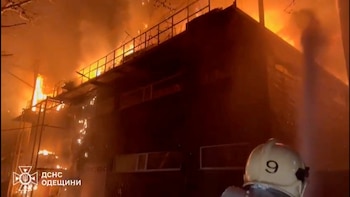
(ATR) The organizing committee for Vancouver’s 2010 Olympics says it broke even on an operating budget of almost $1.9 billion.
The four remaining directors of VANOC met June 27 to close the books. The final financial report was published on July 3, the day after the 11th anniversary of the IOC awarding Vancouver the 2010 Games.
It was the first financial disclosure from VANOC since Dec. 17, 2010, when the organization released the results for the previous year ending July 31.
VANOC reported balancing the operating budget of $1.894,718,000, which included the previously announced $188 million extra from the federal and British Columbia governments. VANOC sought help from the governments and IOC because of the 2008 global economic crisis.
VANOC said the $90.5 million in assets and liabilities that existed on July 31, 2010 were extinguished and no funds are owing any creditor. Likewise, no assets remain.
"Having completed its primary purpose of delivering the 2010 Olympic and Paralympic Winter Games and settling all of its financial matters, the company may now be dissolved," said the report.
Half the $10.6 million in additional revenue during the four-year dissolution was from the IOC, $3.6 million from licensees and $1.2 million from Canadian and TOP sponsors. The report said no government funds were requested or received during dissolution.
Praise for VANOC
In a prepared statement, Canadian Olympic Committee CEO Marcel Aubut congratulated VANOC for delivering the 2010 Games "in world-class style".
"Without question, it was and remains still today, a special moment in our nation’s history," said Aubut.
Canada won a record 14 gold medals during the 2010 Games, which were seen by a global TV audience of 1.8 billion.
VANOC did not explain why the dissolution took two years longer than anticipated. At the IOC session in Durban on July 7, 2011, CEO JohnFurlong said: "We’re very close to being no longer and, by this time next year, we will, in fact, be no longer."
VANOC chair Ken Dobell did not immediately respond to an interview request. Dobell was the last remaining original director from the September 2003-appointed board.
VANOC claimed it collected 99.98% of the $200 million accounts receivable, and resolved all legal and insurance claims.
The $7.6 million in dissolution funds through the services and Games operations function included funds for a British Columbia Coroner-ordered safety audit of the Whistler Sliding Centre after the accidental death of Georgian luger Nodar Kumaritashvili on the Games’ opening day.
VANOC and the IOC also funded the building of a new men’s start area, lower on the track, to reduce sliders’ speeds. VANOC had been warned almost a year before the Games by architect Udo Gurgel that athletes were reaching speeds faster that exceeded the track design.
The report said VANOC spent nearly $2.13 million on staff during the dissolution. It had 60 full-and-part time personnel in 2011, but that was reduced to five part-timers this year. Executive vice-president Terry Wright is now a strategic advisor for the Toronto 2015 Pan American Games, while chief financial officer John McLaughlin is the only senior VANOC executive called on by the IOC to aid future Games. McLaughlin was the financial expert for the 2018 and 2020 evaluation commissions.
Besides Dobell, the last VANOC board included Canadian Olympic Committee CEO Chris Overholt, Resort Municipality of Whistler lawyer Sharon Fugman and Vancouver city manager Penny Ballem. In the 2011 agreement transferring VANOC records to the City of Vancouver archives, Ballem agreed to seal board minutes, monthly financials and correspondence from the public until 2025.
Written by Bob Mackin
20 Years at #1: Your best source of news about the Olympics is AroundTheRings.com, for subscribers only.
Últimas Noticias
Sinner-Alcaraz, the duel that came to succeed the three phenomenons
Beyond the final result, Roland Garros left the feeling that the Italian and the Spaniard will shape the great duel that came to help us through the duel for the end of the Federer-Nadal-Djokovic era.
Table tennis: Brazil’s Bruna Costa Alexandre will be Olympic and Paralympic in Paris 2024
She is the third in her sport and the seventh athlete to achieve it in the same edition; in Santiago 2023 she was the first athlete with disabilities to compete at the Pan American level and won a medal.

Rugby 7s: the best player of 2023 would only play the medal match in Paris
Argentinian Rodrigo Isgró received a five-game suspension for an indiscipline in the circuit’s decisive clash that would exclude him until the final or the bronze match; the Federation will seek to make the appeal successful.

Rhonex Kipruto, owner of the world record for the 10000 meters on the road, was suspended for six years
The Kenyan received the maximum sanction for irregularities in his biological passport and the Court considered that he was part of a system of “deliberate and sophisticated doping” to improve his performance. He will lose his record and the bronze medal at the Doha World Cup.

Katie Ledecky spoke about doping Chinese swimmers: “It’s difficult to go to Paris knowing that we’re going to compete with some of these athletes”
The American, a seven-time Olympic champion, referred to the case of the 23 positive controls before the Tokyo Games that were announced a few weeks ago and shook the swimming world. “I think our faith in some of the systems is at an all-time low,” he said.




